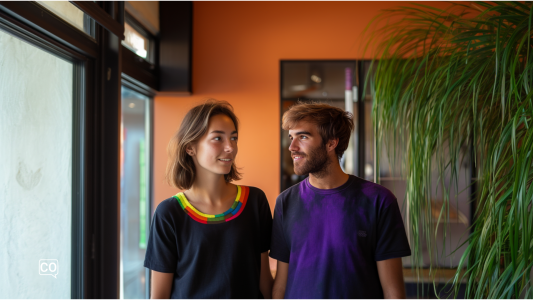A Walk with Surprises Share Copied!
Pedro and Ana walk together and talk about a story full of surprises.
Diálogo: Un Paseo con Sorpresas
Pedro y Ana caminan juntos y hablan sobre un cuento lleno de sorpresas.

A2 Spanish
Level: A2
Module 4: El buen pasado (The good old past)
Lesson 29: Historias y cuentos de hadas (Stories and fairy tales)
Teaching guidelines +/- 15 minutes
Audio and video
Conversation
| 1. | Pedro: | Acabo de leer el libro del que hemos hablado esta semana. | (I just read the book that we talked about this week.) |
| 2. | Ana: | ¡Qué bien! ¿Te gustó? | (That's great! Did you like it?) |
| 3. | Pedro: | Bueno, al principio la historia me pareció aburrida. No pasó nada especial. | (Well, at the beginning the story seemed boring to me. Nothing special happened.) |
| 4. | Ana: | Sí, pero después el personaje principal empezó a buscar ayuda para salvar su ciudad. | (Yes, but afterwards the character started looking for help to save his city.) |
| 5. | Pedro: | Y de repente apareció otro personaje misterioso para ayudarlo. | (And suddenly another mysterious character appeared to help him.) |
| 6. | Ana: | Luego los dos desaparecieron sin decir nada pero al final salvaron la ciudad. | (Then the two of them disappeared without saying anything but in the end they saved the city.) |
| 7. | Pedro: | ¡Qué historia tan emocionante al final! | (What an exciting story at the end!) |
| 8. | Ana: | Sí, antes no me gustaba pero ahora me gusta mucho. | (Yes, before I didn't like it but now I like it a lot.) |
| 9. | Pedro: | Creo que la historia es muy buena. | (I think the story is very good.) |
| 10. | Ana: | ¡Estoy de acuerdo! Era un cuento muy interesante. | (I agree! It was a very interesting story.) |
